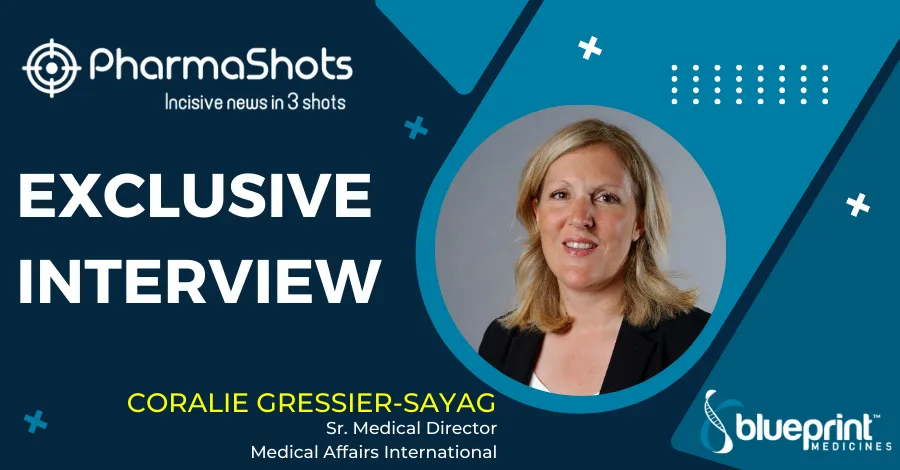
Exclusive Interview with PharmaShots: Anita Holz of Boehringer Ingelheim And Alanna Morris of Emory University Share Insight on Hear Your Heart
In an interview with PharmaShots, Anita Holz, MSN, CRNP, Therapeutic Area Head, Cardiometabolism Medical Affairs, Boehringer Ingelheim & Alanna Morris, Associate Professor of Medicine, Division of Cardiology, Emory University School of Medicine shared their views on the launch of Hear Your Heart to provide resources and education for women with heart failure & highlight inequitable care in black and Latina women
Shots:
- Boehringer & Lilly launch Hear Your Heart, a new initiative empowering women to provide resources & education for women with HF especially Black and Latina women & ensure equitable & quality care
- Black women with HF have a higher mortality rate compared to white women. The program helps to bridge the gap in health disparities for Black and Latina women
- The research showed that the negative health outcomes in Black and Latina women with heart failure are exacerbated by considerable health disparities and inequities in the management of the condition. In comparison to men, healthcare providers are less likely to follow standards in the diagnosis and treatment of heart failure in women
Smriti: Why does this campaign focus specifically on Black and Latina women?
Anita Holz: Heart failure impacts more than six million people nationwide, approximately half of which are women. Despite a similar prevalence of the chronic condition, women diagnosed with heart failure have worse outcomes compared to men. A deeper look reveals that among Black and Latina women with heart failure, negative health outcomes are magnified due to significant health disparities and inequities that exist in the management of the condition. For example, Black women with heart failure have a higher mortality rate compared to white women, and heart disease – which includes heart failure – is the second leading cause of death for Latina women. Hispanic women on average are more likely to develop heart disease 10 years earlier compared to non-Hispanics.
Hear Your Heart aims to tackle these issues by providing resources and education to prompt action among women living with heart failure, care partners, and healthcare professionals to ensure equitable and quality care.
Smriti: Share Tannie’s story with our readers. How will her story encourage other women living with heart failure?
Anita Holz: Tannie is a 60-year-old Houston, TX resident who has been living with heart failure for over six years. After visiting an urgent care clinic in 2015 with what she believed was an upper respiratory infection, Tannie was hospitalized, underwent multiple tests, and was diagnosed with heart failure. This diagnosis was a wake-up call, prompting her to retire from her position as a Court Service Officer soon after in order to focus on her health. Today, Tannie is proud to say that she’s been able to successfully manage heart failure by taking an active role in her care. With her story, we’re able to share a message of hope with other women living with the condition. Her story emphasizes the importance of making essential lifestyle changes to take control of her heart failure care, working with her doctors to create a treatment plan to help her feel her best while managing the condition.
Smriti: Dr. Morris, please let us know your background and why you decided to join this campaign.
Dr. Alanna Morris: I’m passionate about addressing health disparities for people living with heart failure. My research includes the investigation of non-modifiable risk factors associated with cardiovascular health disparities, such as race and gender. As a Black female cardiologist, I understand care isn’t a “one-size fits all” approach, and work with my patients to come up with a plan that works for them. Once I heard about Hear Your Heart, I was immediately interested in getting involved to tackle the gaps in care that can lead to worse health outcomes for Black and Latina women with heart failure.
Smriti: What advice do you give to women looking to take a more active role in their heart failure care?
Dr. Alanna Morris: I recommend women living with heart failure take an active role in their care by taking the time to prioritize their heart health. Making lifestyle changes, ensuring associated medical and mental health conditions are managed, and securing the right care team are all aspects of heart failure care and can be difficult to navigate, especially for women who tend to take the primary role in caring for their families. That’s why it is important for women and their care partners to work together to ensure they’re empowered to take an active role in their health. I encourage everyone to visit HFHearYourHeart.com to access resources that provide educational information and tips for managing heart failure and receiving optimal care.
Smriti: What are some reasons Black and Latina women face significant challenges in getting the best care for their heart failure?.
Dr. Alanna Morris: Black and Latina's women face many unique challenges and barriers that prevent optimal care. A variety of social determinants of health, including health literacy, socioeconomic, and environmental influences, can contribute to poor health outcomes. In terms of heart failure specifically, Black and Latina's communities have higher rates of diabetes, obesity, and high blood pressure which can lead to heart diseases, including heart failure. Additionally, women, particularly Black and Latina women, tend to take a primary caregiving role in their families, with many depending on them. This responsibility can be an emotional and physical burden on women, especially those trying to manage their own health, which can impact health outcomes.
Education and access to the right resources can help improve disparities in care. Our hope is that Hear Your Heart will help provide this support for Black and Latina women living with heart failure, to help them get more from their care.
Smriti: What significance does National Minority Health Month have on the launch of this campaign, which discusses the stories of Black and Latina women living with heart failure?
Dr. Alanna Morris: April was National Minority Health Month, a month that was focused on raising awareness about health disparities that affect people from racial and ethnic minority groups and encouraged action through health education, early detection, and control of disease complications. As an educational health initiative, Hear Your Heart aims to combat health disparities and inequities for women living with heart failure, especially Black and Latina women. The initiative encourages Black and Latina women to prioritize their health and feels confident in asking for the resources they need to feel their best while managing their condition. Though we launched Hear Your Heart during National Minority Health Month, the campaign is a multi-year effort, and we will continue to ensure all women feel empowered to manage all aspects of their heart failure.
Smriti: How can one access the available Hear Your Heart campaign resources?
Anita Holz: All campaign resources can be found on HFHearYourHeart.com. This is our campaign content hub which houses an inspiring video of Tannie, a woman living with heart failure, an informative video with our expert cardiologist, Dr. Alanna Morris, answering key questions and offering tips to help women be proactive in their care, and a downloadable resource for women living with heart failure to help them manage their condition.
Smriti: Can we also discuss some data of Jardiance showing benefit to this specific population?
Anita Holz: Hear Your Heart builds on the work that Boehringer Ingelheim and Lilly are doing to actively address health disparity and equity issues in underserved communities, with specific attention to heart failure. This campaign is an unbranded educational campaign and is not associated with any specific treatment. The purpose of Hear Your Heart is to encourage women with heart failure, especially Black and Latina women, to prioritize their health and feel confident in asking for the resources they need to feel their best while managing the condition.
We are not only committed to research and development and providing new medicines to people in need, but also surrounding this with educational programs where gaps in awareness exist to ensure equitable treatment. There is a lot of work to be done to help marginalized communities realize better health outcomes, and we support efforts to address health disparity and equity issues that utilize various approaches to ensure the greatest impact.
About Authors:
Alanna A. Morris

Dr. Alanna A. Morris, MD, MSc, FHFSA, FACC, FAHA, Associate Professor of Medicine, Division of Cardiology at Emory University School of Medicine. Dr. Morris received her undergraduate degree in Biology from Xavier University of Louisiana & completed her medical degree at the Harvard Medical School and residency at Brigham and Women’s Hospital in Boston, Massachusett
Anita Holz

Anita Holz is the therapeutic area head, cardiometabolism medical affairs at Boehringer Ingelheim Pharmaceuticals. She holds a Bachelor of Science (BS), Registered Nursing/Registered Nurse from Messiah University & Masters of Science in Nursing, Family Nurse Practitioner from Wilmington University
Tags

Senior Editor at PharmaShots. She is curious and very passionate about recent updates and developments in the life sciences industry. She covers Biopharma, MedTech, and Digital health segments along with different reports at PharmaShots.














